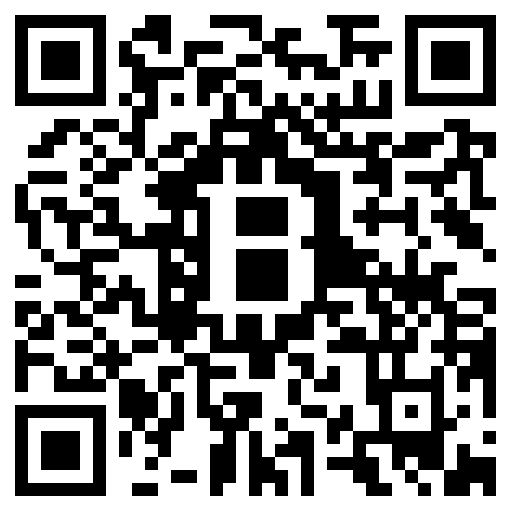Announcements: Cutting Costs (2024) » January 2024 Copyfraud Attack » Finding Universes to Join (and making yours more visible!) » Guide To Universes On RPG » Member Shoutout Thread » Starter Locations & Prompts for Newcomers » RPG Chat — the official app » Frequently Asked Questions » Suggestions & Requests: THE MASTER THREAD »
Latest Discussions: Adapa Adapa's for adapa » To the Rich Men North of Richmond » Shake Senora » Good Morning RPG! » Ramblings of a Madman: American History Unkempt » Site Revitalization » Map Making Resources » Lost Poetry » Wishes » Ring of Invisibility » Seeking Roleplayer for Rumple/Mr. Gold from Once Upon a Time » Some political parody for these trying times » What dinosaur are you? » So, I have an Etsy » Train Poetry I » Joker » D&D Alignment Chart: How To Get A Theorem Named After You » Dungeon23 : Creative Challenge » Returning User - Is it dead? » Twelve Days of Christmas »
Players Wanted: Long-term fantasy roleplay partners wanted » Serious Anime Crossover Roleplay (semi-literate) » Looking for a long term partner! » JoJo or Mha roleplay » Seeking long-term rp partners for MxM » [MxF] Ruining Beauty / Beauty x Bastard » Minecraft Rp Help Wanted » CALL FOR WITNESSES: The Public v Zosimos » Social Immortal: A Vampire Only Soiree [The Multiverse] » XENOMORPH EDM TOUR Feat. Synthe Gridd: Get Your Tickets! » Aishna: Tower of Desire » Looking for fellow RPGers/Characters » looking for a RP partner (ABO/BL) » Looking for a long term roleplay partner » Explore the World of Boruto with Our Roleplaying Group on FB » More Jedi, Sith, and Imperials needed! » Role-player's Wanted » OSR Armchair Warrior looking for Kin » Friday the 13th Fun, Anyone? » Writers Wanted! »
Truth, Induction and Deduction
a topic in Logic & Mathematics, a part of the RPG forum.
Moderators: dealing with it, Ambassadors
Tip jar: the author of this post has received 0.00 INK in return for their work.
-

dealing with it - Groundskeeper

- Member for 13 years
-












What we can look at is how memory and cognition can enhance our survival, and at some periods in time, you'd probably -have- to be looking at this, and recognizing that knowing "things" gives you more of a chance to survive than not knowing "things."
At times like this, it becomes clear that while much (even some fundamental things) of the universe is "technically" unknowable at the time, observations that yield A=A for me as well as you have produced favorable results.
So I think while we can question the sound-ness of our knowing things, its the things we think we know that actually yield results that are worth investing our time and resources to.
I guess most of us would answer your question with, "well, we know this stuff because it works, and it works every time."
To question beyond this is going into the realm of consciousness, idealism and philosophy. Which are not knowable things. Anyone professing otherwise is probably wrong.
Tip jar: the author of this post has received 0.00 INK in return for their work.
- Sara Whitley
- Member for 14 years
-







Is the problem with our epistemic agency? In other words, is the way we process knowledge the problem? Or is the problem with the universe?Sara Whitley wrote: To know this stuff with our current epistemologies just isn't feasible.
To a pragmatist, the universe is practical. I think it's meaningless. I'd have to call myself an epistemic naturalist: "even epistemic claims are part of the universe, and they are a part of how our meaning-making machinery forms our thoughts".Sara Whitley wrote:I guess most of us would answer your question with, "well, we know this stuff because it works, and it works every time."
Everything we will ever experience will be within consciousness. We perceive things like matter and energy, but only in how they affect us, never in some kind of existence-in-itself.Sara Whitley wrote:To question beyond this is going into the realm of consciousness, idealism and philosophy. Which are not knowable things. Anyone professing otherwise is probably wrong.
Tip jar: the author of this post has received 0.00 INK in return for their work.
-

dealing with it - Groundskeeper

- Member for 13 years
-












Clearly there has been something "wrong" with our natural epistemology processes!
The problem, if the problem can be defined as a "lack of total understanding of the universe and its ways," is definitely with the way we process knowledge. The human brain is capable of seeking and knowing truth, and learning facts in an effort to help solve problems. However, this higher cognitive function that we attribute to the essence of humanity is, in reality, only a side-show of the mammalian brain's evolution.
The brain evolved to "win," to survive. Knowing is a virtue when it helps that objective - but what if it hinders? What if knowing and understanding the "truth" actually makes your chances of survival lower?
Endless sources of evidence and probably your own anecdotal experiences point to the fact that humans will usually (not always, but usually) sacrifice being "correct" for having a greater chance of survival and happiness. So being "correct" is not actually the primary objective our minds have evolved for - being "correct" is only one of many tools that help us win. When it's helping us win, we strive to do it. When it's only getting in the way, we have a tendency to discard it.
This is why people will literally "choose" to believe the beliefs of their social groups even when confronted with conflicting evidence, if denouncing such beliefs would cause the individual to become shunned from the group. Because correctness and knowledge is only one of a multitude of means to achieve the brain's real objective - not the objective in and of itself.
This is probably the sole source of most of the barriers we have to learning and acquiring facts. There are a multitude of cognitive biases https://en.wikipedia.org/wiki/Cognitive_bias that define these barriers. Problems in any epistemology approaches are probably going to be made out of these biases.
One thing I feel confident in saying is that the problem is not the universe - though I believe Niel Degrasse Tyson said it much better than I ever could, "the universe has no obligation to make sense to you."
Tip jar: the author of this post has received 0.00 INK in return for their work.
- Sara Whitley
- Member for 14 years
-







Trial and error and error and error, the most elementary form of scientific thought, takes forever to work.Sara Whitley wrote:If humans have been around for 200,000 years, why did it seem to take 199,900 years to start caring about knowing and getting our heads straight?
The ability to use the human mind as a tool for advancement (Reason) is a late development in history.Sara Whitley wrote:Clearly there has been something "wrong" with our natural epistemology processes!
That's a problem for metaphysics. Knowledge of causality, God, logic, space and time, the will, and the basic assumptions of the natural sciences seem incontestable. Until, of course, you get too close. From the microscope to the telescope, we all know nothing.Sara Whitley wrote:The problem, if the problem can be defined as a "lack of total understanding of the universe and its ways," is definitely with the way we process knowledge.
Plato's cave, still relevant two thousand years later.Sara Whitley wrote:However, this higher cognitive function that we attribute to the essence of humanity is, in reality, only a side-show of the mammalian brain's evolution.
People with mental illnesses often become far more religious and philosophical than those who never experienced a nervous breakdown. If mental illnesses cause an obsession with spiritual thoughts, it would be no wonder that day-to-day life for the mentally ill is so much more challenging.Sara Whitley wrote:What if knowing and understanding the "truth" actually makes your chances of survival lower?
My aunt is a compulsive gambler. Reason would only get in her way.Sara Whitley wrote: When it's only getting in the way, we have a tendency to discard it.
If we discard all the discoveries of metaphysics, would we be better off? Let's say that, for all we know, causality is a fiction, logic is an illusion, God is a hallucination, and the will is a delusion. Just assume that Aristotle was never challenged in the modern world. Would trial-and-error (the scientific method) have taken us, sans philosophy, to where we are today? Is epistemic and metaphysical thought necessary to the evolution of our species? Or, does Reason only give us the appearance of meaning, inserted post hoc?Sara Whitley wrote:One thing I feel confident in saying is that the problem is not the universe - though I believe Niel Degrasse Tyson said it much better than I ever could, "the universe has no obligation to make sense to you."
Tip jar: the author of this post has received 0.00 INK in return for their work.
-

dealing with it - Groundskeeper

- Member for 13 years
-












I do NOT do Pokemon, Yugioh, WoW or any such RPs.
Please be aware of this.
Tip jar: the author of this post has received 0.00 INK in return for their work.
-

Aniihya - Member for 15 years
-














Post a reply
-
Make a Donation
RPG relies exclusively on user donations to support the platform.
Donors earn the "Contributor" achievement and are permanently recognized in the credits. Consider donating today!
Who is online
Users browsing this forum: No registered users and 0 guests
